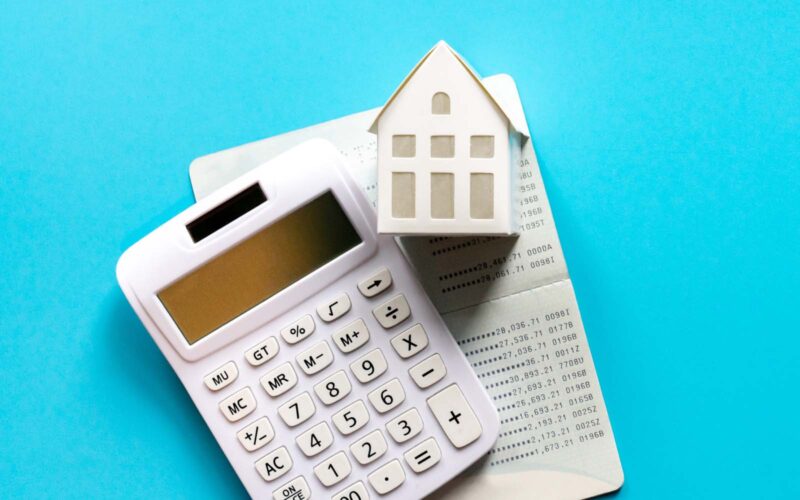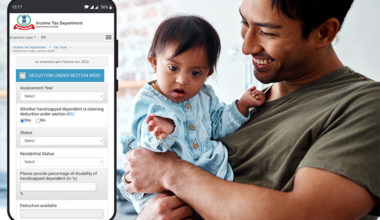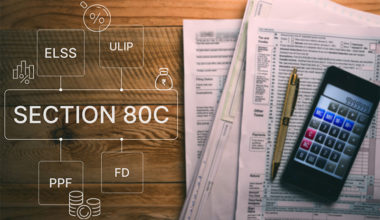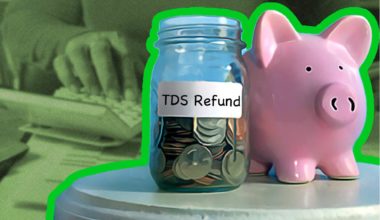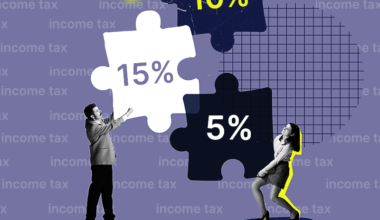House Rent Allowance (HRA) is a part of your salary that helps cover your rental expenses. It’s a great benefit because it also offers tax advantages for individuals who live in rented homes. In this blog, we will explain everything you need to know about HRA exemption, the rules that apply to it, and how you can claim deductions for HRA.
Table of Contents Show
What is House Rent Allowance (HRA)?
House Rent Allowance (HRA) is an allowance provided by employers to employees to help them with their rental expenses. The amount of HRA received by an employee varies based on factors like their salary, location of the rented house, and the actual rent paid. It is aimed at providing financial support to employees for their housing needs.
What is HRA for Self-Employed Individuals?
For self-employed individuals who do not receive HRA, there is still a way to claim a similar exemption. It is called the HRA exemption under Section 80GG of the Income Tax Act (ITA). This provision allows self-employed individuals, as well as salaried individuals who do not receive HRA from their employer to claim a deduction for the rent they pay for their accommodation.
What is HRA for Salaried Individuals?
HRA, or House Rent Allowance, is an exemption provided to salaried individuals under Section 10(13A), rule 2A of the Income Tax Act. It allows individuals to claim tax benefits for the rent they pay. It is important to follow the company’s policies and provide necessary documents, such as rent receipts, to claim the HRA exemption.
Eligibility Criteria for Availing Tax Deductions on House Rent Allowance (HRA)
To qualify for tax deductions on House Rent Allowance (HRA) as per Section 10 (13A) of the Income Tax Act, individuals must meet the following eligibility criteria:
- Employment Status: The individual seeking HRA deductions must either be self-employed or employed in a salaried position.
- Rented Residence: The current place of residence must be rented. HRA calculations consider only rented properties, not the individual’s residence
- Documentation: A house rent receipt or any other valid proof of residence is required to support the claim for HRA deductions.
Documents Required for Claiming Tax Exemptions on House Rent Allowance
To claim HRA tax exemption, certain documents are required if the rent paid during the fiscal year exceeds Rs. 1 Lakh. These documents include:
- PAN card details and a copy of the landlord/property owner.
- Rent payment receipts, which should include the following information:
- Date and identity of the landlord.
- Tenant’s name.
- PAN card details of the landlord if the annual rent exceeds Rs. 1 Lakh.
- Address of the rented accommodation.
- Duration of the stay.
- A revenue stamp if the annual rent exceeds Rs. 1 Lakh, with the landlord’s signature on it.
Each rent receipt is valid for 3 months, so it is recommended to collect at least the most recent 4 receipts to cover the entire year.
When Is the Landlord’s PAN Required?
The landlord’s PAN is needed when you pay more than ₹1,00,000 in rent annually. If your yearly rent crosses this amount, the Income Tax Department says you should provide your landlord’s PAN. This helps you claim benefits on rent payments and follows tax rules by properly declaring your rental income for taxes.
HRA Exemption Rules & Tax Deductions
Here are some key points about HRA exemption rules and tax deductions:
- HRA Limit: The HRA received cannot exceed 50% of your basic salary.
- Exemption Calculation: The HRA exemption is determined by the smallest value among the following:
a) Actual rent paid minus 10% of your basic salary.
b) Actual HRA received from your employer.
c) 50% of your basic salary if you live in a metro city*. - Home Loan and HRA: Even if you have a home loan, you can still claim HRA benefits.
- Rent to Parents: If you reside in your own house, you can pay rent to your parents, provide the necessary proof, and claim HRA benefits. However, paying rent to your spouse and claiming HRA is not allowed.
- PAN Details: If your annual rent exceeds Rs. 1,00,000, you need to include your landlord’s PAN details along with the HRA claim form.
- NRI Landlord: If your landlord is an NRI, you have the option to deduct 30% tax from the rent and declare it.
* Metro cities are large urban areas with a high population and are economically significant. In India, metro cities like Mumbai, Delhi (including the National Capital Region), Kolkata, and Chennai are well-known examples.
Non-metro cities, also called non-metropolitan cities or Tier 2 and Tier 3 cities, are smaller urban areas with a lower population compared to metro cities.
HRA Tax Exemption: A Practical Example
Mr. Kumar works in Chennai and pays a monthly rent of Rs. 15,000. His employer provides him with an HRA of Rs. 20,000 per month. Now, let’s calculate the eligible HRA amount for tax exemption:
- Actual HRA received: Rs. 20,000 x 12 = Rs. 2,40,000
- Actual rent paid minus 10% of basic salary:
- Rent paid for the year = Rs. 15,000 x 12 = Rs. 1,80,000
- 10% of basic salary = 10% of (Mr. Kumar’s monthly basic salary x 12)
- Let’s assume his basic salary is Rs. 50,000 per month.
- 10% of Rs. 50,000 x 12 = Rs. 60,000
- Exemption amount = Rs. 1,80,000 – Rs. 60,000 = Rs. 1,20,000
- 40% of basic salary (since he lives in Chennai):
- Exemption amount = 40% of (Mr. Kumar’s monthly basic salary x 12)
- Assuming his basic salary is Rs. 50,000 per month.
- 40% of Rs. 50,000 x 12 = Rs. 2,40,000
In this example, Mr Kumar can claim an HRA tax exemption of Rs. 1,20,000, which is the least amount among the calculated figures. This means he can reduce his taxable income by Rs. 1,20,000 for the financial year.
Note: This is just an example, and actual calculations may vary based on individual circumstances and applicable tax rules.
How to Claim HRA When Living with Parents?
- Rent agreement: Create a rental agreement with your parents. It should state the rent amount, duration, and other terms. This agreement adds legitimacy to the arrangement.
- Pay rent regularly: Make sure you pay rent to your parents regularly. Keep records of these payments, such as bank transfers or receipts, as proof of the rental transaction.
- Keep rent receipts: Ask your parents to provide rent receipts for the payments you make. These receipts will serve as evidence when claiming HRA benefits.
- Calculate HRA exemption: Use online HRA calculators or seek assistance from a tax professional to determine the taxable and exempt portions of your HRA. This will help you maximize your HRA exemptions and reduce your taxable income.
What Happens if I Do Not Receive House Rent Allowance?
If you do not receive House Rent Allowance (HRA) from your employer, you will not be able to claim the HRA exemption while filing your income tax return. HRA is a component of your salary that is specifically provided to cover your rental expenses. It is exempt from tax up to certain limits under Section 10(13A) of the Indian Income Tax Act.
If you do not receive HRA, you can still claim tax benefits for the rent paid by other means, such as:
- Self-occupied property: If you live in your own house or do not pay any rent, you cannot claim HRA exemption. However, you can still claim tax benefits on home loan interest under Section 24(b) and principal repayment under Section 80C, if applicable.
- Deduction under Section 80GG: If you are a salaried or self-employed individual who does not receive HRA and does not own a house, you may be eligible to claim deduction under Section 80GG for the rent paid. The deduction limit under this section is up to Rs. 5,000 per month or 25% of the total income, whichever is lower, subject to certain conditions.
How to Claim Deduction Under Section 80GG?
To claim the deduction under Section 80GG, you need to provide the following details:
| Information Required | Details |
| Your Full Name | [Your Name] |
| PAN (Permanent Account Number) | [Your PAN Details] |
| Address of Rented Property | [Complete Address with Postal Code] |
| Duration of Stay in Rented Property | [Tenure of Stay] |
| Rent Paid | [Amount of Rent Paid] |
| Mode of Rent Payment | [Cash, Bank Deposit, etc.] |
| Landlord’s Name | [Landlord’s Name] |
| Landlord’s Address | [Landlord’s Address] |
| Declaration of Property Ownership | [Declaration in Form 10BA] |
Is it Possible to Claim HRA and Deduction on Home Loan Interest?
Yes, it is possible to claim both House Rent Allowance (HRA) and deduction on home loan interest simultaneously, provided you meet the eligibility criteria for both. The HRA exemption can be claimed if you are living in a rented house and paying rent, while the home loan interest deduction can be claimed if you have taken a home loan for a self-occupied or vacant property. Ensure you fulfill the conditions and maintain proper documentation to claim these benefits while filing your income tax return.
